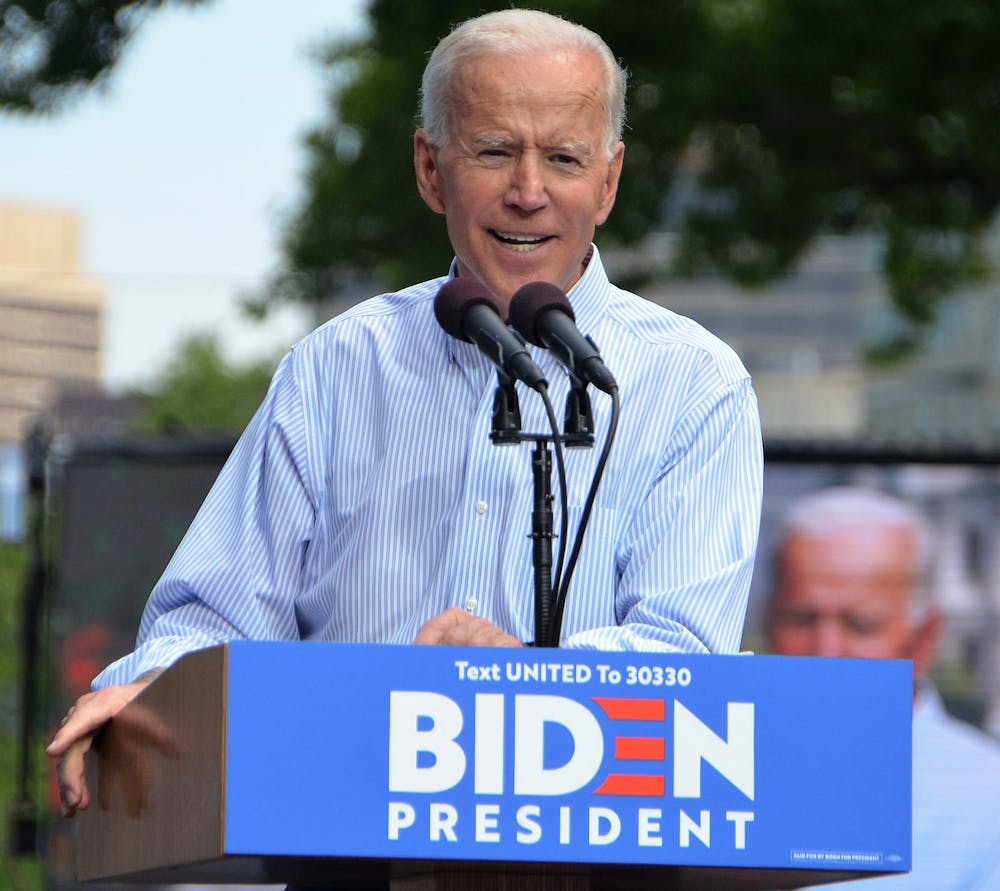Since the ousting of former Speaker of the House Kevin McCarthy, the Republican Party nominated four different candidates to fill his seat, and all candidates until Mike Johnson, who was aided by his relatively obscure status, failed to secure enough votes. This is a Republican party in deep disarray, which cannot decide whether to rally behind Trump, the current GOP presidential primary frontrunner by a wide margin, or try to move on.
For a moment, the party appeared to have no clear path to electing a speaker and returning to a functioning legislature. The GOP may still be too divided to avert a government shutdown when the current funding bill expires on Nov. 17. This level of dysfunction and inability to govern, especially in the continuing wake of the widely unpopular Dobbs decision, should be the type of political landscape which would lead to a major Democratic victory in the 2024 election. So why doesn’t current polling data project a substantial lead for Biden?
There is dysfunction on the Democratic side as well. A recent Gallup poll shows that Biden’s approval rate among Democrats has dropped 11 points in the last month to 75%, the lowest of his presidency thus far. Opinions are very divided on the ongoing conflict in Gaza, and the position of the Biden administration seems irreconcilable with the views of most voters. A poll from Data for Progress found that 80% of Democrats and 56% of Republicans somewhat or strongly agree with a ceasefire in Gaza, and yet, White House Press Secretary Karine Jean-Pierre recently called congressional members’ calls for a ceasefire “repugnant,” and only 18 of the House’s leftmost Democrats have co-sponsored Cori Bush’s ceasefire resolution.
Why is something supported by a bipartisan majority of voters considered a fringe position in the Democratic Party and unthinkable in the Republican Party? I bring this up not to make a moral argument on this issue, but rather to say that public opinion has shifted in a way that the Biden administration has not kept up with.
One need not look further than the Hopkins campus and The News-Letter itself to see that young people in particular are very divided on this issue. Biden already has a problem connecting with young voters; a recent Quinnipiac poll showed a shocking 25% approval rate among voters aged 18–34. His uncritical pro-war stance risks further alienating young voters — the same poll found that only 23% of voters aged 18–34 approve of Biden’s handling of the conflict, compared to 56% of the 65+ demographic.
Biden and the Democratic Party must remember that young voters were major contributors to Democratic victories in 2022, and discouraging them severely dampens Democrats’ chances in the next election. The administration’s response to this crisis also risks angering Arab American and Muslim voters, who make up 5% of the voting base in the key battleground state of Michigan, where Biden won in 2020 with 50.6% of the vote.
It is also true that many of the Biden administration’s biggest successes have not been lasting ones, which may send a conflicting message to voters. While Treasury Secretary Janet Yellen is saying that we can “certainly” afford two wars, many of Biden’s post-COVID welfare expansions are no longer in effect. The popular expansion of the Child Tax Credit, which Biden touted, saying it would halve child poverty (which it did), expired at the end of 2021. Child poverty more than doubled in the next year.
Biden may have been responsible for a significant expansion of the welfare state, but its transience means he is now overseeing its largest shrinking in decades, and his campaign must be aware of the recency bias with which voters will perceive his economic policy. In a strange turn of events, many popular economic policies, such as the student loan pause, began under the Trump presidency and ended under Biden. Of course, this has nothing to do with the presidents themselves and everything to do with the effect of COVID-19 on fiscal policy, but it’s easy to see how some voters might feel let down by this.
Joe Biden’s presidency has undeniably been held back by filibusters and conservative Democratic caucus members in the Senate, the current Republican majority in the House and challenges from the Supreme Court. But the intense division and dysfunction in the Republican Party provides a rare opportunity for a landslide victory for Democrats in 2024, which they look to be failing to fully capitalize on. With the massive shrinking of the welfare state and the Biden administration’s divisive pro-war stance on the conflict in Gaza, the foundation is being laid for a second Trump term. Remember that this kind of “lesser of two evils” thinking is exactly what led to the election of Trump in the first place.
Staunch Biden supporters will often argue that, while he might not be perfect, now is not the time to criticize him, as we must unify behind him as the election approaches. They criticize voters who might feel alienated by the administration, claiming that Trump would be worse on every issue they disagree with Biden on and that the responsible decision is to vote for Biden despite their disagreements. I agree with this sentiment in theory, but I believe this criticism is misguided. I don’t believe that you can bully voters into voting for a candidate that they don’t feel represents them. Rather, you must give them something to vote for. This is why I believe that now is exactly the time for activism and criticism of the current administration.
Biden has one year to score a major policy victory or risk turning the country over to authoritarianism. At times like these, it is dangerous to be silent on his missteps and necessary to apply pressure.
Max Hsu is a sophomore from Fort Lauderdale, Fla. majoring in Writing Seminars and Political Science.

















